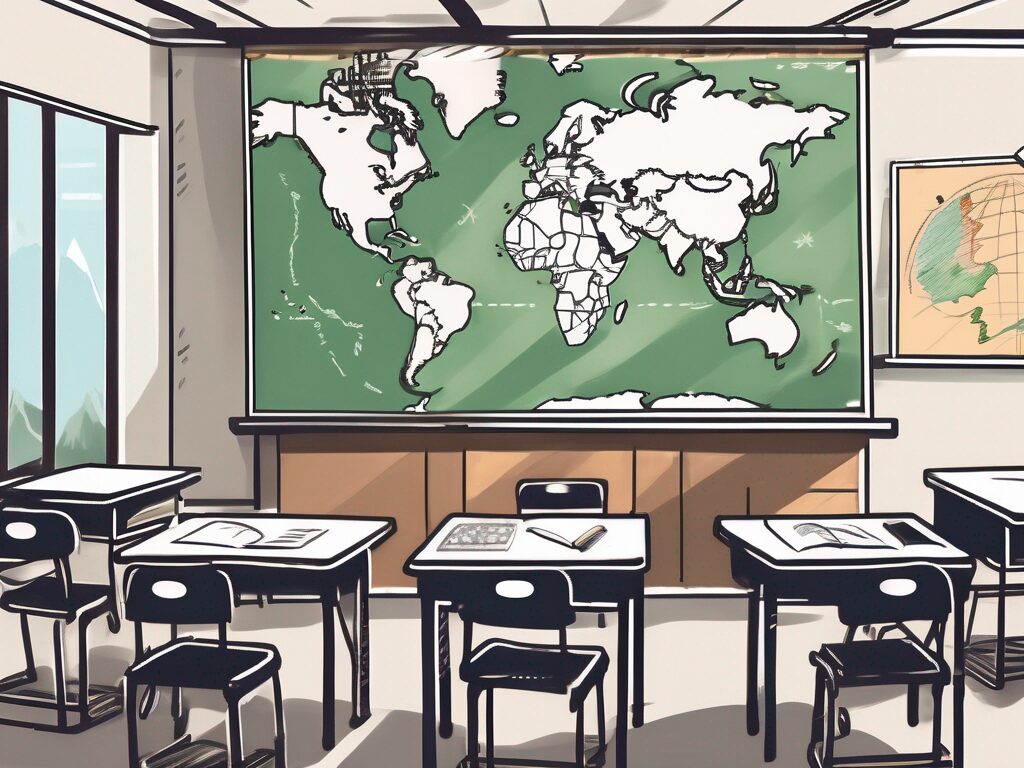Top 5 Education Challenges in Indonesia to Address by 2025
As the fourth most populous nation globally, Indonesia’s education sector faces a myriad of challenges that impede the effective delivery of teaching and learning. Despite notable advancements in recent years, the country continues to confront significant obstacles that require urgent attention. This guide provides a comprehensive analysis of the primary education challenges in Indonesia, offering insights for international educators and consultants.
1. Infrastructure and Accessibility
Geographical Barriers
Indonesia’s unique geographical landscape, characterized by thousands of islands, poses substantial challenges to educational accessibility. Many educational institutions, particularly in remote and rural regions, are deprived of essential facilities such as reliable electricity, clean water, and adequate classroom space. This situation mirrors the experiences of other archipelagic nations, such as the Philippines, where geographical dispersion similarly complicates educational access.
Furthermore, the deficiency in transportation infrastructure exacerbates the issue, making it arduous for students to commute to school. In numerous instances, students must traverse long distances on foot or navigate challenging terrains, which adversely affects attendance and diminishes their readiness for academic engagement.
2. Insufficient Educational Facilities
A significant number of schools in Indonesia, particularly those situated in rural locales, are under-resourced. They frequently lack critical facilities such as libraries, science laboratories, and computer labs. This scarcity of resources is reminiscent of challenges faced by educational institutions in rural India, where similar deficiencies hinder effective learning.
The absence of adequate facilities restricts the implementation of a comprehensive curriculum, particularly in disciplines that necessitate practical application, such as science and technology. Consequently, this limitation adversely impacts the quality of education and the overall learning experience for students.
3. Quality of Education
Teacher Qualifications and Professional Development
The quality of educators in Indonesia remains a pressing concern. While many dedicated teachers strive to provide quality education, there exists a pervasive shortage of qualified teachers, particularly in less accessible regions.
Moreover, the adequacy of teacher training and ongoing professional development is often insufficient. Many educators have not received the necessary training to deliver effective instruction, a challenge that is prevalent in various developing nations, including neighboring Malaysia, where teacher quality is similarly scrutinized.
4. Curriculum and Assessment Practices
The Indonesian education system has faced criticism for its overemphasis on rote learning and memorization, often at the expense of fostering critical thinking and problem-solving skills. This challenge is not unique to Indonesia, as many Asian education systems, including that of China, exhibit a comparable focus on rote learning methodologies.
Additionally, the assessment framework in Indonesia tends to prioritize academic performance over holistic student development, including character building and creativity. This narrow focus on academic results can hinder the comprehensive growth of students and inadequately prepare them for the complexities of the 21st-century workforce.
5. Socioeconomic Influences
Income Disparities
Income inequality significantly impacts the educational landscape in Indonesia. Children from affluent families typically enjoy superior educational opportunities compared to their counterparts from lower-income backgrounds. This global phenomenon is evident in various countries, including the United States and South Africa, where socioeconomic disparities similarly affect educational outcomes.
For instance, wealthier families can afford private schooling or supplementary tutoring, while those from economically disadvantaged backgrounds often depend on underfunded public schools. This disparity contributes to the achievement gap in education.
Child Labor Issues
Child labor remains a significant socioeconomic challenge that adversely affects education in Indonesia. Despite existing legislation prohibiting child labor, many children, particularly in rural areas, are compelled to work. This issue is also prevalent in countries such as Bangladesh, where child labor similarly obstructs educational access.
Children engaged in labor often miss school or drop out entirely. Even when they do attend, their capacity to concentrate on learning is compromised by the demands of their work, adversely affecting their educational outcomes and future opportunities.
Conclusion
While Indonesia has made commendable progress in enhancing its education sector, these challenges continue to impede further advancements. Addressing these issues necessitates a multifaceted strategy that encompasses infrastructure improvement, teacher training enhancement, curriculum reform, and the mitigation of socioeconomic inequalities.
Although these challenges may appear formidable, they are not insurmountable. With dedicated efforts and strategic investments in education, Indonesia can overcome these barriers and ensure quality education for all its children. As Nelson Mandela aptly stated, “Education is the most powerful weapon which you can use to change the world.”
Enhance Your Teaching Career with IPGCE
Recognizing the multifaceted challenges within Indonesia’s educational landscape, IPGCE encourages educators to elevate their qualifications and navigate professional obstacles. By enrolling in the UK’s premier Teacher Training Course, you can enhance your prospects for securing international teaching positions, accelerate your career trajectory, and connect with a global network of education professionals. The International Postgraduate Certificate in Education (iPGCE) is designed for educators seeking to deepen their expertise and adapt to diverse educational systems while maintaining their professional commitments through flexible online study options. Do not allow inadequate credentials or isolation to limit your potential. Join the iPGCE program today and contribute to transformative educational practices.

